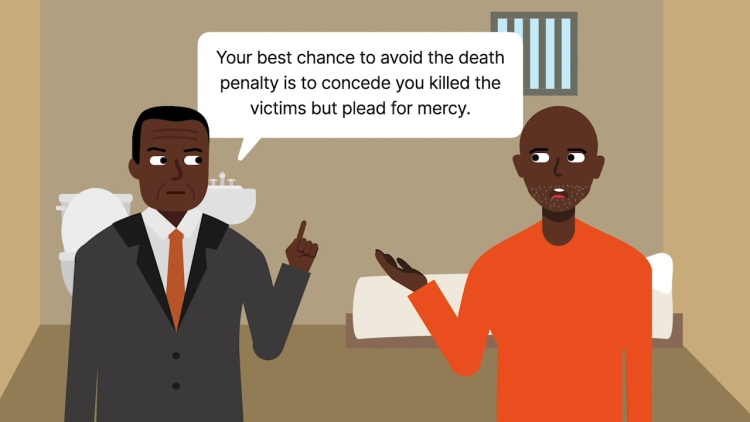McCoy v. Louisiana
United States Supreme Court
138 S. Ct. 1500, 200 L.Ed.2d 821 (2018)
- Written by Rose VanHofwegen, JD
Facts
Robert McCoy (defendant) insisted that he did not murder his estranged wife’s family, despite overwhelming evidence against him. The prosecution (plaintiff) charged him with three first-degree murders and sought the death penalty. Appointed counsel requested a sanity assessment, and McCoy was found competent to stand trial. After McCoy rejected the counsel assigned to him, his parents retained attorney Larry English to represent him. English decided that the jury would inevitably impose the death penalty unless McCoy conceded guilt. When McCoy learned that English planned to concede guilt, he tried to fire English, but the court refused to allow English to withdraw just two days before trial. When English told the jury that McCoy had killed the three victims in opening statements, McCoy protested that English was “selling [him] out.” The court advised McCoy that English would continue representing him and that it would not permit further outbursts. McCoy then testified in his own defense, presenting an unlikely alibi. English reiterated that McCoy was the killer in closing but urged mercy because of McCoy’s “serious mental and emotional issues.” The jury imposed the death penalty. McCoy retained a new attorney, seeking a new trial based on violations of his constitutional rights, but the Louisiana Supreme Court affirmed. Noting that state supreme courts disagreed on whether conceding guilt over a defendant’s objection violates the Sixth Amendment, the United States Supreme Court granted review.
Rule of Law
Issue
Holding and Reasoning (Ginsburg, J.)
Dissent (Alito, J.)
What to do next…
Here's why 904,000 law students have relied on our case briefs:
- Written by law professors and practitioners, not other law students. 47,100 briefs, keyed to 995 casebooks. Top-notch customer support.
- The right amount of information, includes the facts, issues, rule of law, holding and reasoning, and any concurrences and dissents.
- Access in your classes, works on your mobile and tablet. Massive library of related video lessons and high quality multiple-choice questions.
- Easy to use, uniform format for every case brief. Written in plain English, not in legalese. Our briefs summarize and simplify; they don’t just repeat the court’s language.





